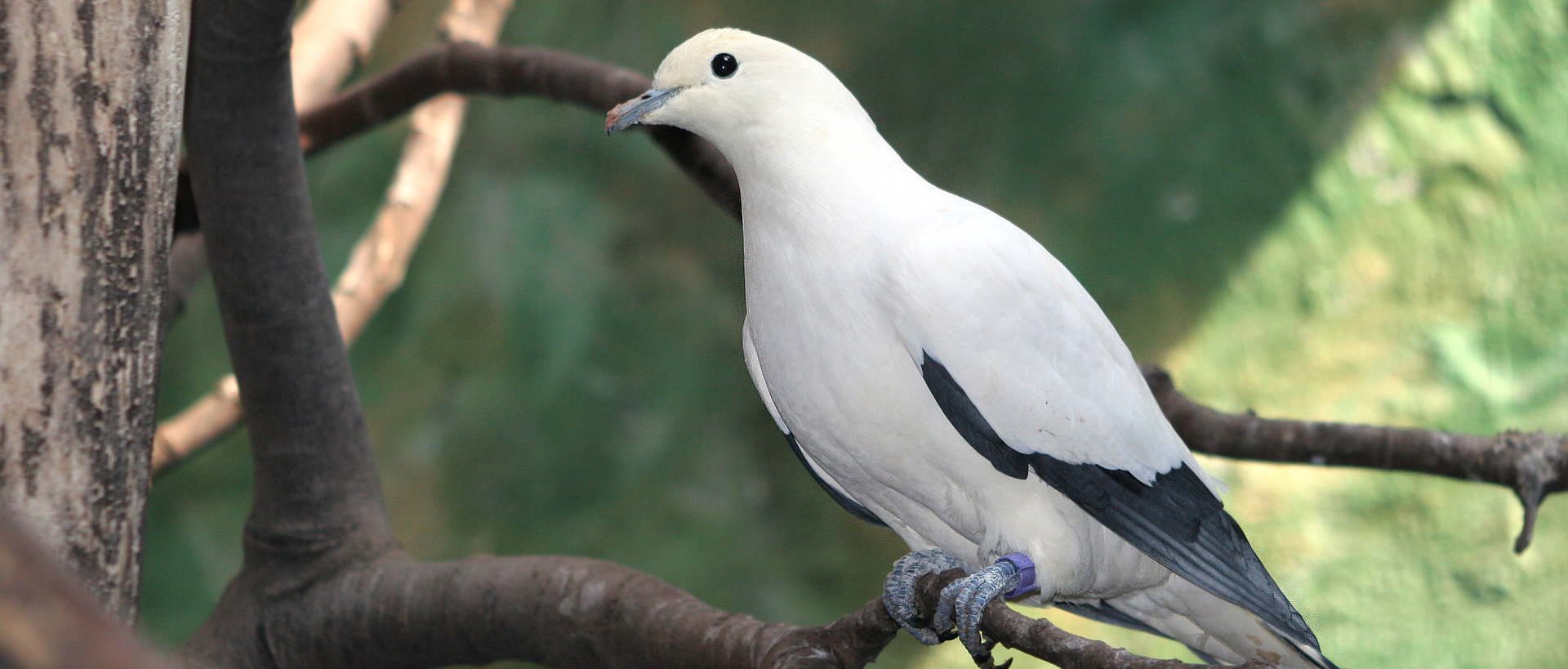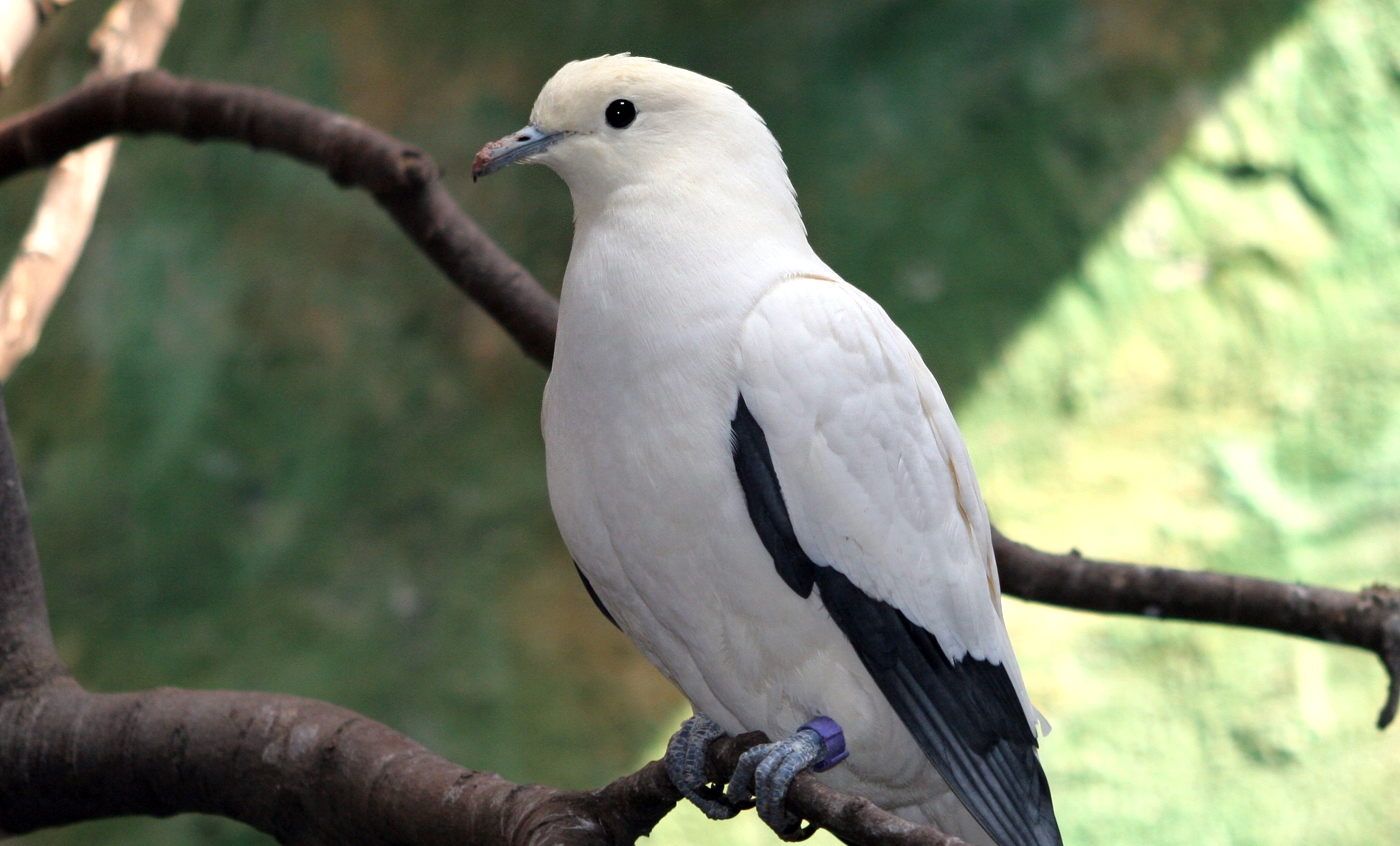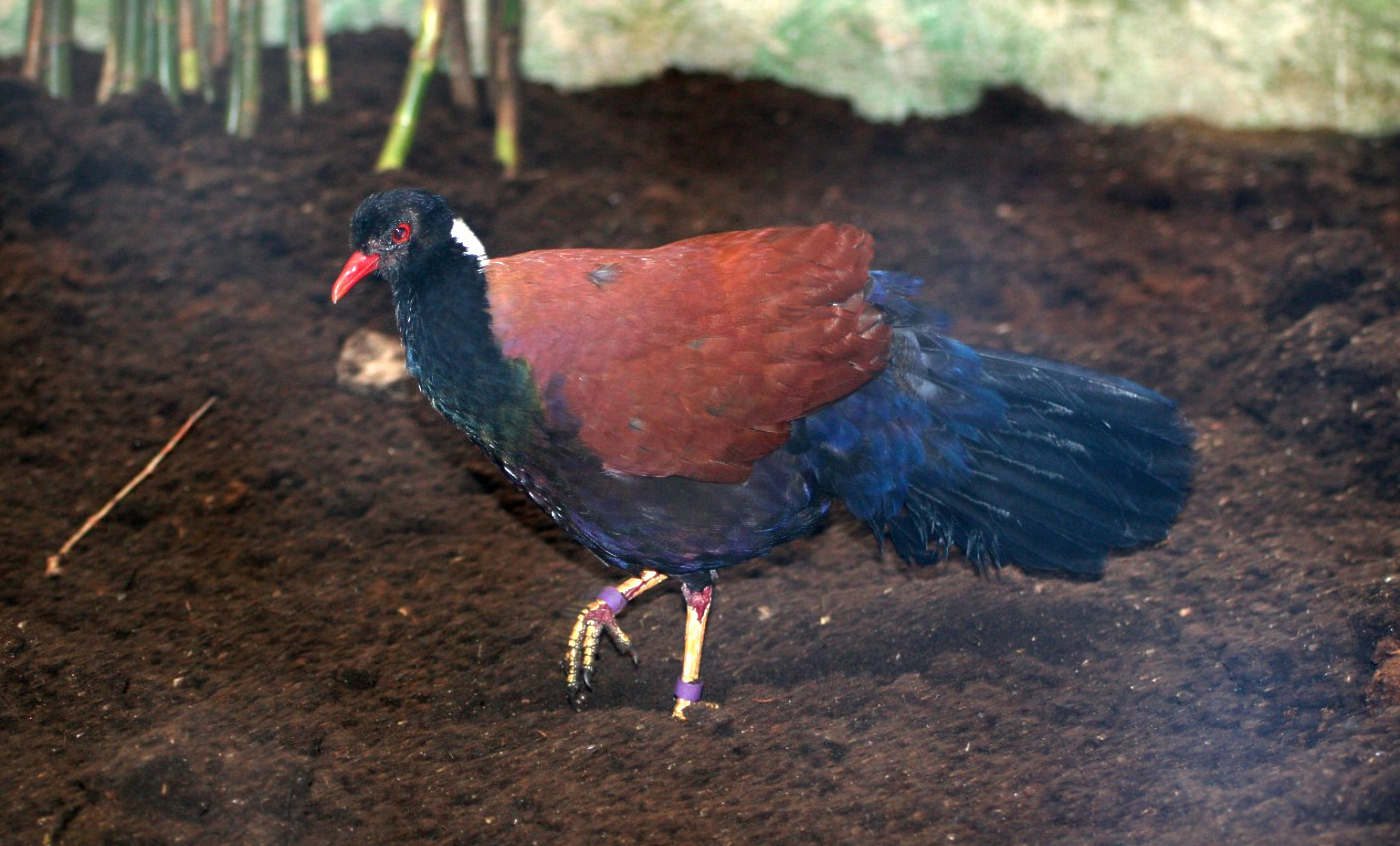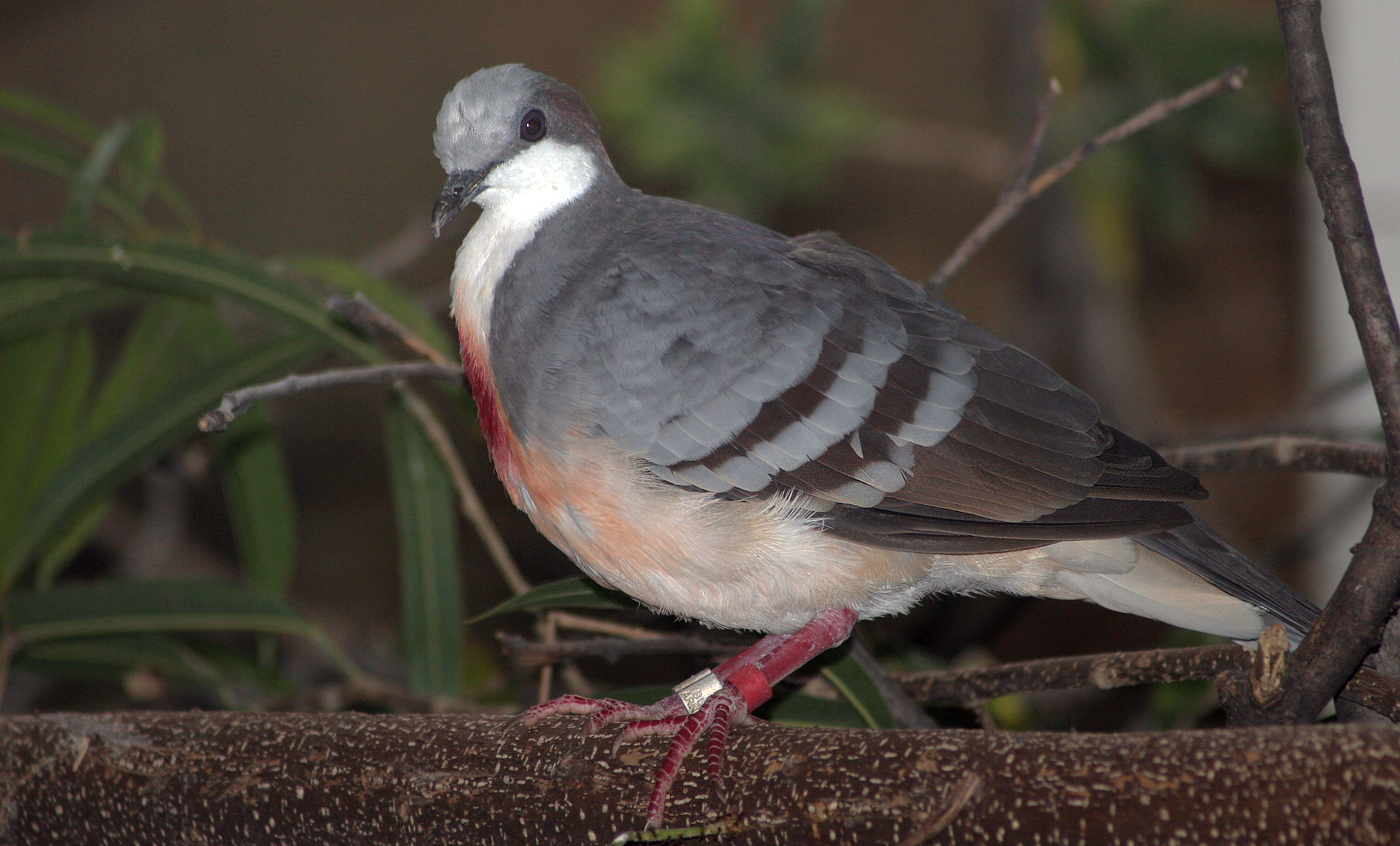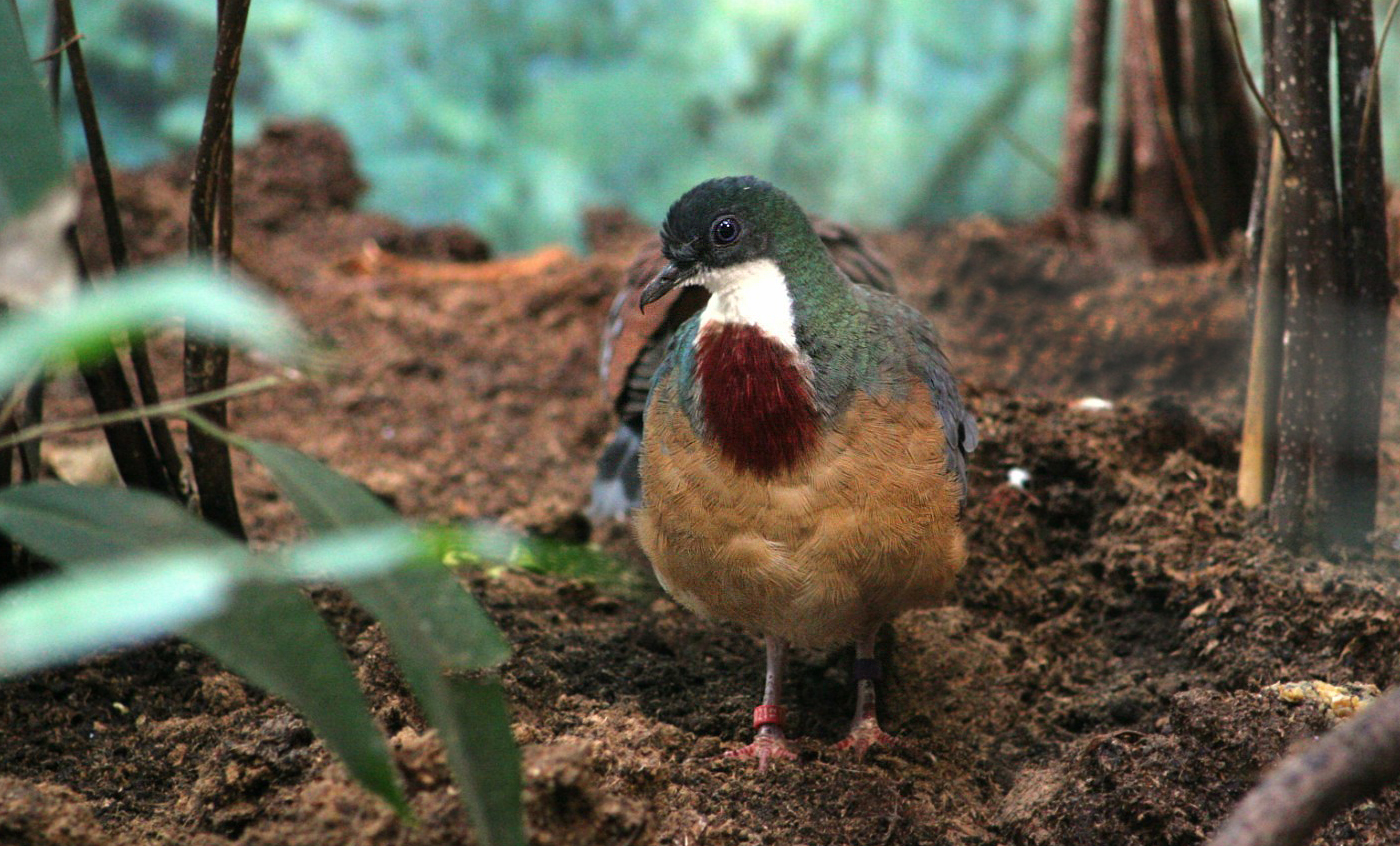Pied imperial pigeon
The Pied Imperial Pigeon is a frugivorous pigeon, characterised by its bicolouration, with the head, body and legs in white and the tips of its wings and tail in black.
It lives in the coastal jungles and mangrove swamps of Southeast Asia, Indonesia, Sulawesi, the Philippines and western New Guinea, from sea level right up to the mountain forests at an altitude of over 1,000 metres.
Natural habit
Malaysia, Indonesia, Philippines, New Guinea.
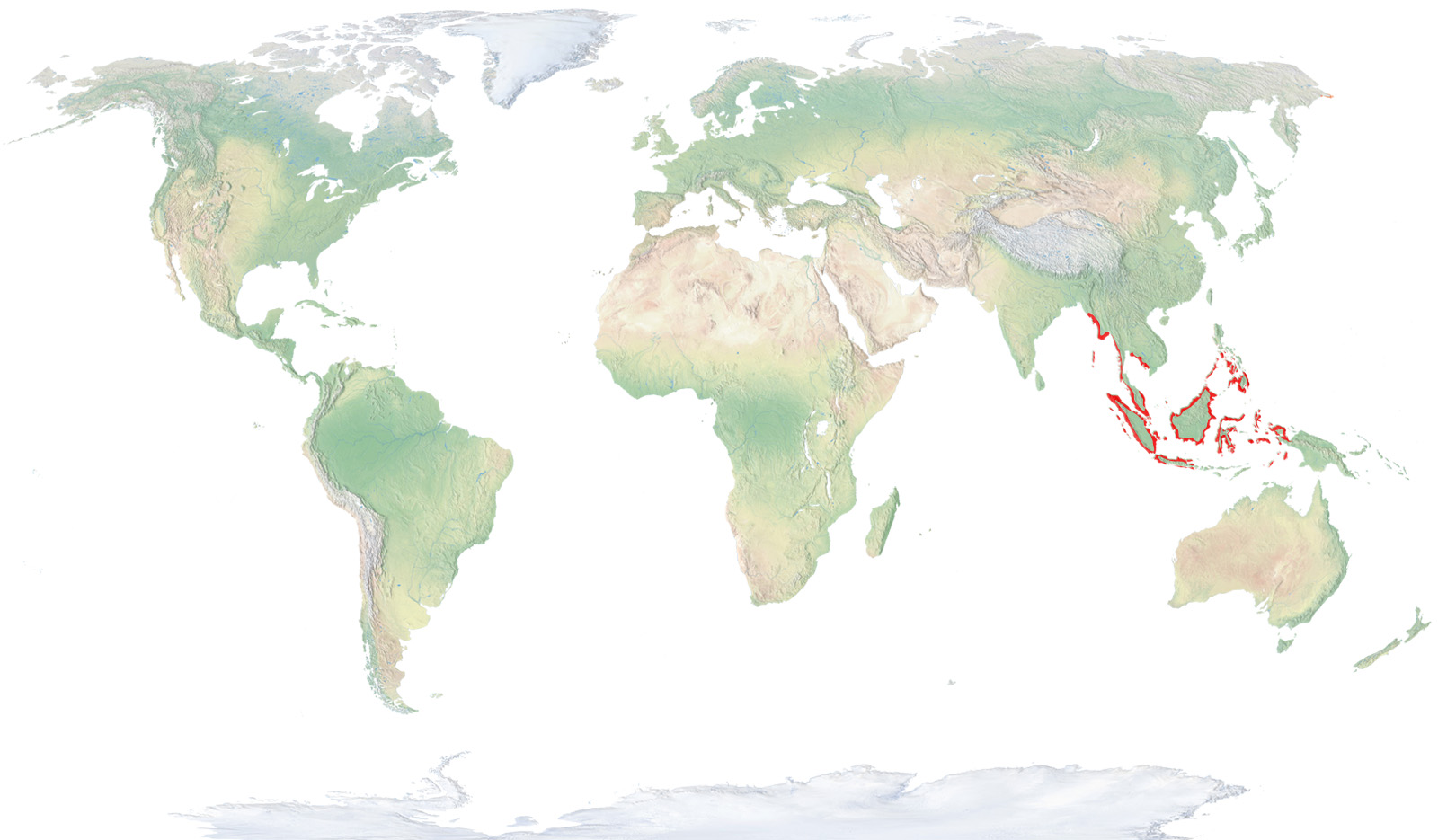
- Distribution / Resident
- Breeding
- Wintering
- Subspecies
Risk level
- Extint
- Extint in the wild
- Critically endangered
- In Danger
- Vulnerable
- Near threatened
- Minor concern
- Insufficient data
- Not evaluated
Taxonomy
Physical characteristics
Biology
Reproduction
Biology
This large pigeon, up to 42 cm long, is characterised by its dual-coloured plumage, to which its taxonomic name makes reference. All the plumage is white except for the tips of the wings and tail, which are black.
They inhabit coastal mangroves and jungles of southwest Indochina, Malaysia, Indonesia and the Philippines, generally in lowlands, although some subspecies can be found in forested regions at over 1000 m altitude.
Frugivorous, they eat all types of fruits and berries that they prefer to consume high in the treetops.
They reproduce in small colonies located on small islands with little human interference. They normally lay one egg, although two have occasionally been recorded.
They travel quite considerable distances between their breeding and feeding grounds, forming flocks can be made up of numerous specimens.
Still a quite common species in some regions of their extensive area of distribution, they are threatened in many others primarily due to the deforestation and deterioration of their jungle habitat. This species also lives on Komodo Island, sharing its habitat with the largest saurian in the world, the infamous Komodo dragons.



